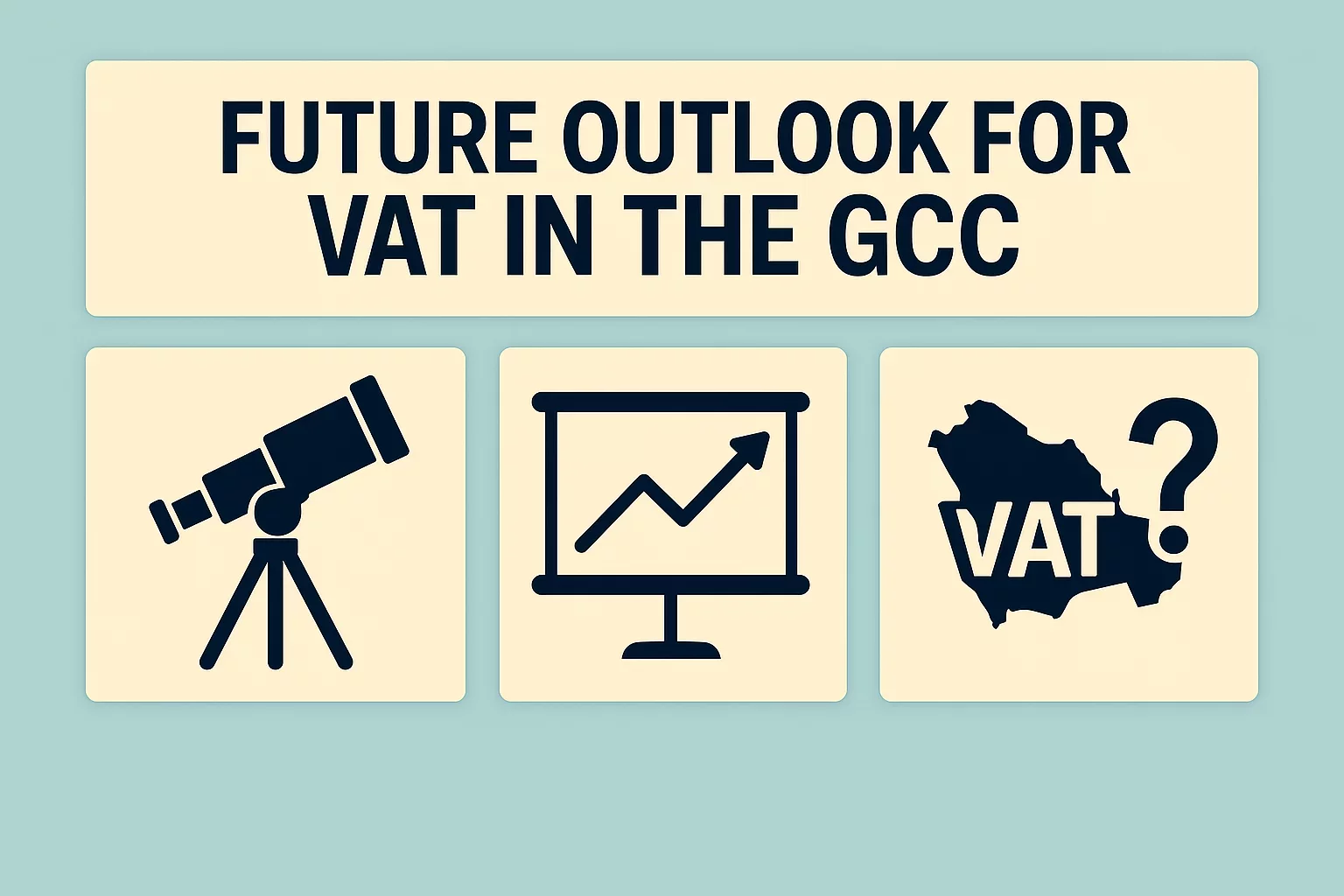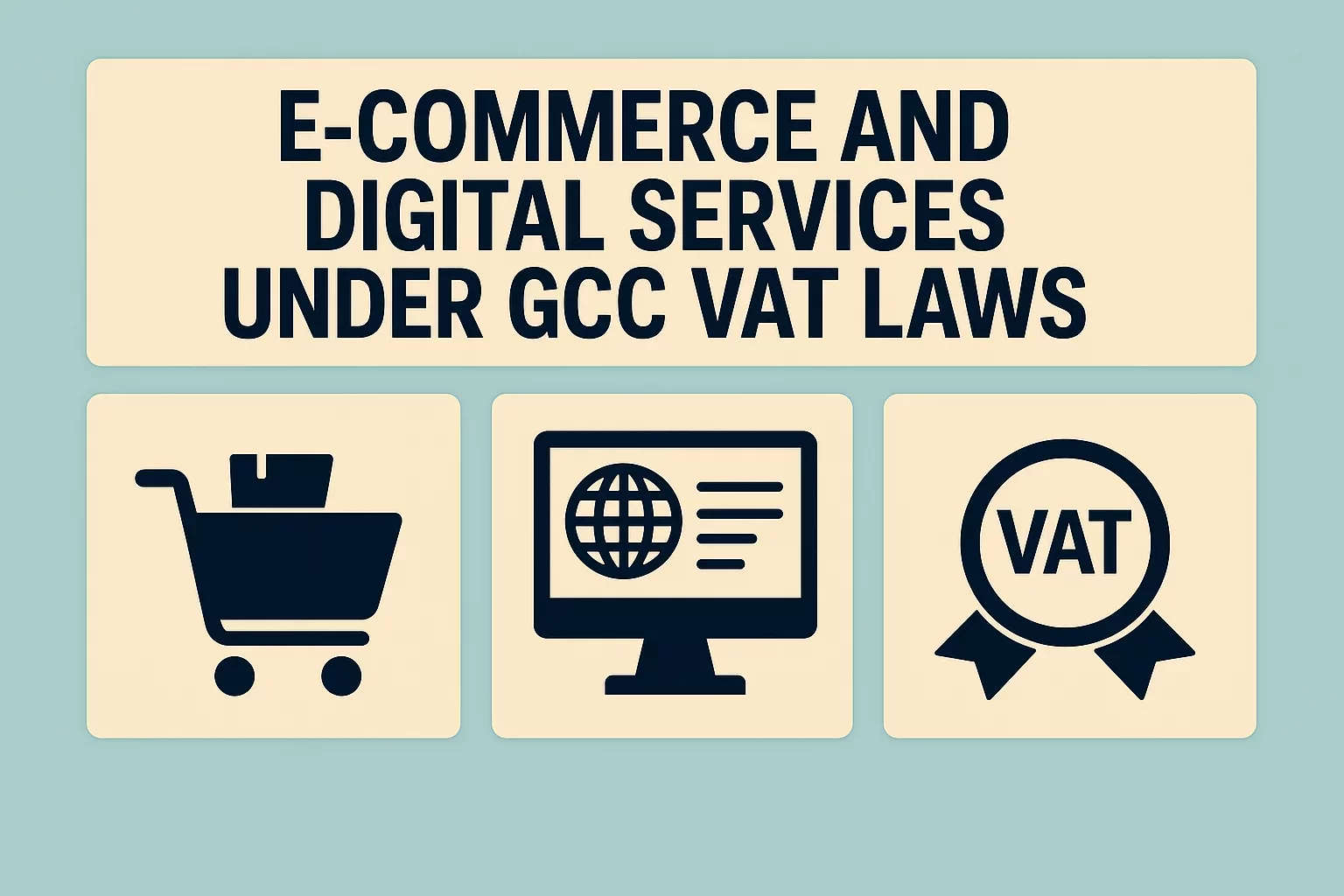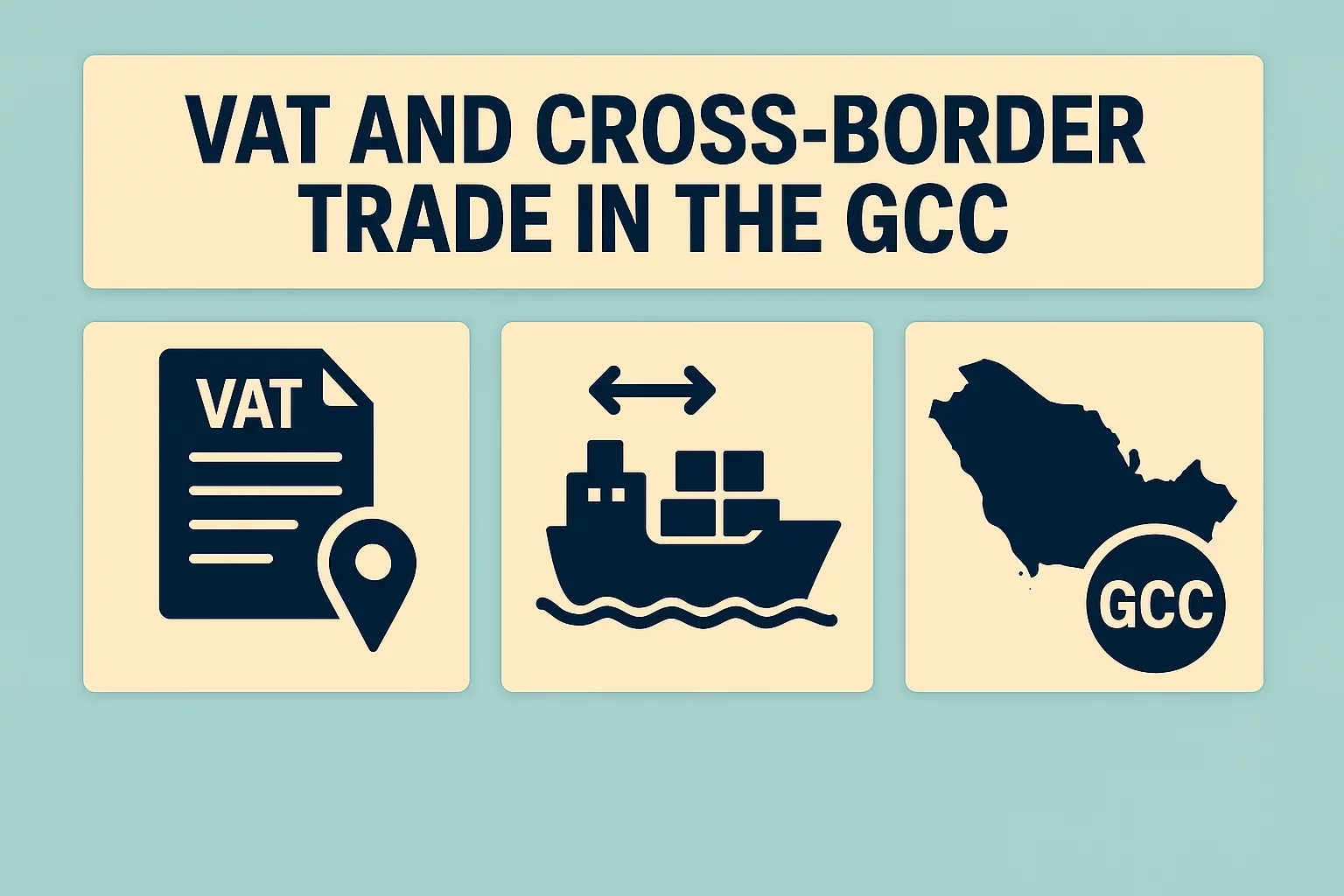Overview of the VAT in the Gulf Region
Explore VAT in the Gulf Region with GCC rules, rates, country updates, and compliance trends shaping taxation across the Middle East.
The introduction of VAT among the Gulf region countries marks a transformation in the region’s fiscal architecture. While the economies heavily rely on oil revenues, the Gulf countries have turned to implementing VAT to diversify their income streams, stabilize public finances, and modernize their taxation systems.
One of the key mechanisms to achieve this was the conclusion of the Unified Agreement for VAT of the Cooperation Council for the Arab States of the Gulf, commonly referred to as GCC VAT Framework Agreement (GCC VAT Agreement), which sets out the framework under which VAT can be implemented in each of the Gulf countries.
Historical Overview of the GCC VAT
The roots of VAT implementation in the Gulf region can be traced back to December 2015, when the Gulf Cooperation Council (GCC) Supreme Council agreed to adopt a unified VAT framework. As a result of this agreement, in May 2017, the GCC countries, Bahrain, Kuwait, Oman, Qatar, Saudi Arabia, and the United Arab Emirates, adopted a binding GCC VAT Framework Agreement that mandates several core principles.
These principles include a 5% standard rate, common rules on zero-rating and exemptions, and mechanisms to manage intra-GCC trade, as well as the application of a reverse-charge mechanism to cross-border services. Moreover, the GCC VAT Agreement requires each GCC country to enact national VAT rules and regulations. Additionally, the goal was to implement VAT regulations simultaneously in January 2018, thereby fully harmonizing the applicable VAT rules in the region.
In addition to core principles and implementation deadlines, the GCC VAT Agreement also includes relevant definitions, and rules on the scope of tax, place of supply of goods and services, importation, VAT deductions, VAT registration requirements, and VAT returns filing and payment frequency.
VAT Systems Across GCC Countries
Although the GCC countries reached an agreement on implementing VAT rules and regulations, as well as harmonizing these rules across the region by January 1, 2018, some delays occurred in the process. While delays were primarily caused by the differing levels of administrative readiness to implement the VAT legislation, other factors, such as evolving domestic economic priorities, contributed to divergence from complete harmonization.
Bahrain
Bahrain introduced VAT on January 1, 2019, at a standard rate of 5%, thus becoming the third GCC country to enact national VAT rules and regulations. However, due to persistent fiscal pressures, the government doubled the rate to 10%, effective January 1, 2022.
Administered by the National Bureau for Revenue (NBR), the system requires that all taxable persons conducting an economic activity independently generate income and make annual supplies exceeding the mandatory threshold of BHD 37,500 (around USD 99,500) to register for VAT purposes, and obtain a VAT registration certificate and a dedicated VAT account number to start collecting and remitting VAT.
Kuwait
Although Kuwait signed and ratified the GCC VAT Agreement, it has not yet implemented VAT. The initial plan to implement VAT in 2021 was delayed due to the negative economic impact of COVID-19 and subsequently inflationary pressures. Plans to continue implementing national VAT rules and regulations have changed in recent years. The latest information from the Kuwaiti government is that it plans a four-year rollout, which is expected to be completed by 2028.
Oman
VAT was introduced in Oman in April 2021 at a standard rate of 5%. The Oman VAT Law outlines provisions for mandatory and voluntary VAT registration thresholds, set at OMR 38,500 (approximately USD 100,000) and OMR 19,250 (approximately USD 50,000).
However, there are no revenue limits for VAT registration for non-resident companies, which means that they are subject to VAT as soon as they engage in taxable activities in Oman. In addition to this mandatory registration, foreign companies must also provide a bank guarantee or appoint an official registered representative with the Tax Authority.
Qatar
Qatar is another GCC country, besides Kuwait, that has not implemented national VAT rules and regulations, despite signing the GCC VAT Agreement. The Qatari government conducted consultations and trials, laying the groundwork for eventual implementation. Although VAT in Qatar is expected to mirror other GCC regimes, including a 5% rate, mandatory registration thresholds, and standard provisions of zero-rated and exempted goods and services, there is no established implementation timeline.
Saudi Arabia
Saudi Arabia implemented VAT at the standard rate of 5% on January 1, 2018. However, the Saudi Arabian government increased the standard VAT rate to 15% in July 2020 in response to the budget deficits during the COVID-19 pandemic.
The Saudi Arabia VAT system employs advanced compliance tools, including mandatory e-invoicing since 2020, strict audit mechanisms, and penalties for non-compliance. The VAT registration threshold is set at SAR 375,000 (around USD 100,000).
United Arab Emirates
United Arab Emirates (UAE), together with Saudi Arabia, were the first countries to implement VAT at the standard rate of 5% on January 1, 2018. Administered by the Federal Tax Authority, established in 2016, the UAE VAT Law includes familiar zero-rating and exemptions, as well as a mandatory VAT registration threshold of AED 375,000 (approximately USD 102,000) and a voluntary VAT registration threshold set at AED 187,500 (around USD 51,000).
Regional Integration and Future Outlook
To date, four out of six GCC countries have implemented VAT under the GCC VAT Agreement. In addition to a lack of information on Kuwait's and Qatar's implementation plans and schedules, two GCC countries, specifically Bahrain and Saudi Arabia, have already increased their standard VAT rates to 10% and 15%, respectively.
Therefore, although the GCC VAT Agreement encompasses unified definitions, rules for taxable supplies, intra-GCC treatment, reverse-charge, and invoice standards, there is divergence in the implementation policies. Additionally, some GCC countries, such as Saudi Arabia and the UAE, are ahead of the rest of the GCC countries in implementing and utilizing digital tools, including e-invoicing.
The non-uniform implementation of VAT rules and regulations leads to trade friction, further emphasizing the importance of harmonizing VAT legislation. Nevertheless, despite these challenges, a consensus can be reached in stating that the rollout of VAT is a crucial step toward broader integration and enhanced policy cohesion among GCC countries.
Therefore, it is expected that once Kuwait and Qatar implement VAT into national legislation, GCC countries will continue their work on harmonizing VAT rules across the region. Possible fields of cooperation include development of systems to monitor and track VAT compliance and cross-border transactions, such as unified customs databases and the development of single e-invoicing or other digital reporting requirements.
Conclusion
In just under a decade, VAT has significantly improved public finance across the Gulf region. From the initial proposals to signing the unified GCC VAT Agreement and nationwide rollouts, VAT has redefined and continues to redefine the GCC fiscal policy.
Although challenges persist and divergent national implementations continue to hinder cross-border trade and administrative coherence, GCC countries are still developing VAT policies and systems. Whether the establishment of a united economic block through VAT policies is possible depends on future developments, primarily technological integration and regulatory frameworks.
FAQs
As of now, Saudi Arabia, the United Arab Emirates, Bahrain, and Oman have implemented VAT. Kuwait and Qatar have not yet introduced domestic VAT legislation.
Delays were primarily due to varying levels of administrative readiness, economic priorities, the COVID-19 pandemic, and inflationary pressures that made some countries cautious about introducing a new tax system.
The GCC VAT Framework Agreement establishes a standard rate of 5%, but countries can adjust this rate as needed. For example, Saudi Arabia raised its rate to 15% in 2020, and Bahrain increased it to 10% in 2022.
No official deadline has been set. Qatar has conducted consultations and prepared draft legislation but has not yet implemented VAT.
Saudi Arabia has fully implemented mandatory e-invoicing, and the UAE is preparing to introduce similar measures by 2026. Oman is another country that has announced plans to introduce mandatory e-invoicing, with implementation scheduled in several phases throughout 2026, 2027, and 2028.
Source: KPMG, Government of Bahrain, UAE Ministry of Finance, Oman Tax Authority, Saudi Arabia Zakat, Tax, and Customs Authority, Common VAT Agreement of the States of the Gulf Cooperation Council (GCC), PwC, EY, VATabout


